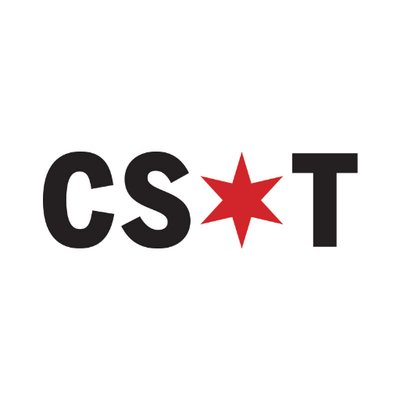



A group of West Side activists gathered outside the offices of the city’s police oversight agency on Wednesday to criticize its nascent investigation into allegations of sexual misconduct involving Chicago police officers and at least one immigrant housed at a police station.
On July 6, a police spokesperson said the department’s Bureau of Internal Affairs was jointly investigating the allegations alongside the Civilian Office of Police Accountability without providing details. The following day, COPA announced that its probe involved officers assigned to the Odgen District just hours before immigrants were moved from the station.

An activist holds a poster that reads “Stop sexual harassment” during a press conference outside the Civilian Office of Police Accountability in the West Town neighborhood. Local groups are critical of an official investigation into allegations of sex abuse of migrants living at a police station.
Pat Nabong/Sun-Times
One of the officers assigned to the district covering Lawndale and Little Village was accused of impregnating a teenage girl, law enforcement sources said.
COPA hasn’t announced any updates in the days since the Police Department announced the probe, prompting the group of around 15 activists to say the investigation cannot be trusted. COPA takes an average of 562 days to close an investigation, an agency spokeswoman has previously told the Sun-Times.
“We’re making sure these asylum-seekers have a voice, that this crime doesn’t get put under the rug and get ignored,” said Baltazar Enriquez, president of the Little Village Community Council.
COPA was established in 2016 to replace the troubled Independent Police Review Authority, but the activists claimed the agency hadn’t brought about any substantive changes in creating independent oversight. “You can rename it, but at the end of the day they’re not doing their job,” Enriquez said.
Standing outside COPA’s West Town offices, the group demanded an explanation of what protocols are in place to prevent sexual misconduct at shelters and called for an update on the investigation — including that COPA release the names of accused officers.
Jennifer Rottner, a COPA spokeswoman, said top agency officials “engaged in a very productive conversation” with the group on Wednesday.
“This is currently an active and ongoing investigation, and we have no additional details to provide at this time,” Rottner added.

Migrants gather their belongings outside the District 10 Police Station on Friday, July 7, 2023.
Owen Ziliak/Sun-Times
The group also questioned whether COPA had discovered similar allegations at other police stations where migrants have been staying as the city has scrambled to find them shelter. One activist urged other migrants to seek help from local community groups, instead of the authorities.
“If you know anybody that’s been affected by this, speak out,” said a man who identified himself as Almighty Blessing, a member of the Little Village Community Council. “Don’t be afraid. Reach out to the” council.
At least one recent migrant was on hand for the protest.
Mariser Fernandez arrived from Venezuela two months ago and first stayed in Piotrowski Park in Little Village, where the field house was turned into a temporary shelter.
Fernandez, 40, hadn’t heard any stories of sexual misconduct and declined to speak about what happened at the Ogden police station, given the ongoing investigation.
But she wanted to speak up about the “inhumane” treatment she received at the temporary shelter and to urge other migrants to seek help with community groups.

Mariser Fernandez, an asylum-seeker urges migrants to seek help from community groups.
Pat Nabong/Sun-Times
The family planned for the daughters to find work while she looked after the children, but that plan had to be altered when management at the shelter wouldn’t allow her grandson in without his mother, she said.
“I understand there has be rules, but I asked them to take into consideration that this is my 2-year-old grandson,” she said.
She couldn’t understand how the people running the shelter could be so inflexible.
“They didn’t take into consideration any of that,” she said. “They kicked us out into the street.”
She later met a member of the local community council who connected her to others at the organization who have since helped her find housing. Now, she looks after her grandchildren while her daughters work.
“There are people who can help us,” she said, “We’re not alone.”
Michael Loria is a staff reporter at the Chicago Sun-Times via Report for America, a not-for-profit journalism program that aims to bolster the paper’s coverage of communities on the South Side and West Side.
